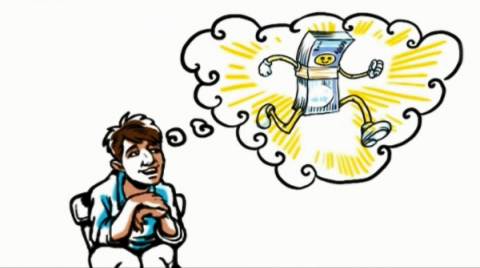Inflation is a sustained increase in the general price level of goods and services in an economy over a period of time. When the general price level rises, each unit of currency buys fewer goods and services. In simpler terms, inflation refers to a situation where something costs more today than it used to. For example, when my father was young, he used to buy a dozen eggs for Rs.20, but today it easily costs Rs.100.
 For the average person’s wallet, inflation is generally a bad thing. It means that with every passing year, your rupee is worth less than it used to be. When inflation is high, your rupee is getting cheaper faster; when its low, your rupee is still getting cheaper, but not as fast. Here are some ways that inflation affects your everyday life:
For the average person’s wallet, inflation is generally a bad thing. It means that with every passing year, your rupee is worth less than it used to be. When inflation is high, your rupee is getting cheaper faster; when its low, your rupee is still getting cheaper, but not as fast. Here are some ways that inflation affects your everyday life:
-
Higher prices at the grocery store:
When inflation is high, the prices at the store are going to go up faster.
-
Low interest savings accounts actually lose money:
If your savings account has a lower rate than the rate of inflation, your money is actually becoming less valuable over time. This is a good reason to find a high-interest savings account, so that your savings can beat inflation.
-
When inflation is high, interest rates on home loans, credit cards, and other big loans will go up:
This will overall encourage people to spend less money, and thus sellers won’t be able to keep raising prices, so inflation will slow down.





